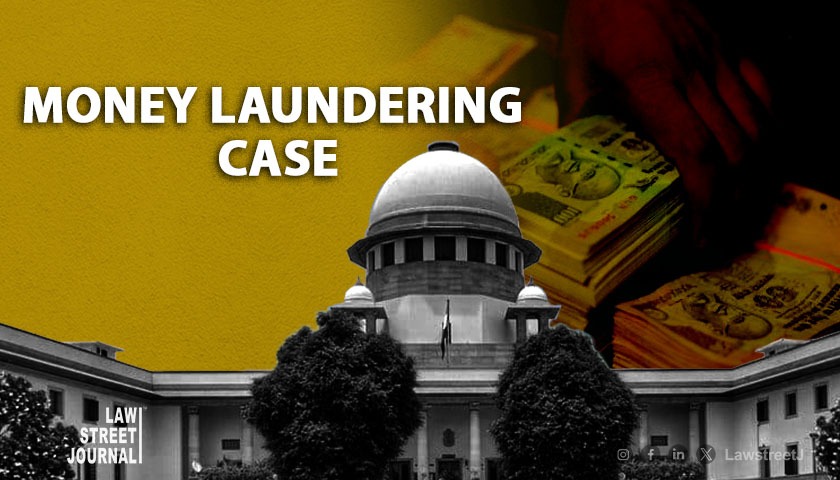NEW DELHI: The Supreme Court has on October 3 asked the Enforcement Directorate to maintain stringent standards of probity, fairness and not to be vindictive in its functioning.
The top court also ruled that it is mandatory for the agency to disclose grounds of arrest at the time of arrest and mere non cooperation of the accused cannot lead to arrest.
"We hold that it would be necessary, henceforth, that a copy of such written grounds of arrest is furnished to the arrested person as a matter of course and without exception," a bench of Justices A S Bopanna and P V Sanjay Kumar said while ordering immediate release of real estate company M3M's directors Basant Bansal and Pankaj Bansal in a money laundering case.
The court said that a mere order of remand is not enough to validate the grounds of arrest, while stating the Enforcement Directorate must disclose the grounds of arrest to the accused.
"The ED, mantled with far-reaching powers under the stringent Act of 2002, is not expected to be vindictive in its conduct and must be seen to be acting with utmost probity and with the highest degree of dispassion and fairness," the bench said.
In the instant case, the bench said that the focus of the bail matter was solely on the legality of the arrest and remand and not the merits of the allegations.
The top court took serious exception to the ED officer orally reading out the grounds of arrest to the accused without supplying them with a written copy of the grounds for their arrest. It also pointed out the appellants were arrested by the ED in a retaliatory move after they were granted protection in another case by the Delhi High Court.
"Section 167 of Code of Criminal Procedure has to be necessarily complied with. Enforcement Directorate's actions in curbing money laundering is supposed to be fair and stringent and not vindictive. The Enforcement Directorate failed to discharge its functions as per these parameters. No consistent and uniform practice seems to be followed by Enforcement Directorate in regard of furnishing grounds of arrest," the top court said.
While setting aside order the remand, the court ordered release of the accused forthwith.
In its judgement, the court laid down the norms, making it necessary for a copy of grounds of arrest to be furnished to the accused at the time of arrest.
The appeals were filed by the arrested directors against a Punjab and Haryana High Court's order that refused to interfere with the arrest of the M3M directors in relation to a bribery case against former special CBI court judge, Sudhir Parmar.
The Haryana Police's Anti Corruption Bureau had arrested the Bansal brothers earlier this year in connection with a first information report registered against judge Parmar.
Thereafter, the duo were summoned on June 14 for questioning in an alleged money laundering case and the then arrested in another case registered by the ED on the same day. The ED claimed that it had received information that Parmar was showing favouritism to the accused in a money laundering case concerning real estate firm, IREO.
The ED is probing the Bansal brothers along with firm IREO for their roles in money laundering and diversion of Rs 400 crore to shell companies abroad.
The agency had also alleged that a huge amount of money running into hundreds of crores was siphoned off through the M3M group in this case. It told the high court that it has collected incriminating evidence such as bank statements and money trail, etc with respect to the allegations in the FIR before making the arrests.














